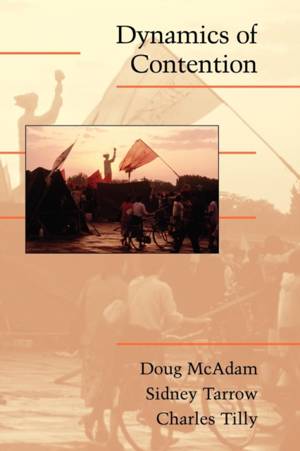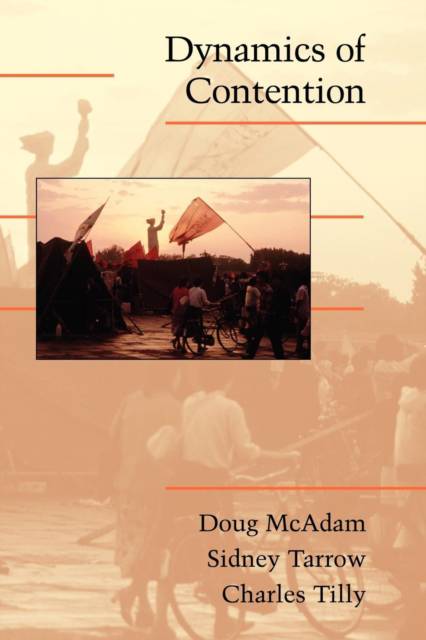
- Afhalen na 1 uur in een winkel met voorraad
- Gratis thuislevering in België vanaf € 30
- Ruim aanbod met 7 miljoen producten
- Afhalen na 1 uur in een winkel met voorraad
- Gratis thuislevering in België vanaf € 30
- Ruim aanbod met 7 miljoen producten
Zoeken
Omschrijving
Dissatisfied with the compartmentalization of studies concerning strikes, wars, revolutions, social movements, and other forms of political struggle, McAdam, Tarrow, and Tilly identify causal mechanisms and processes that recur across a wide range of contentious politics. Critical of the static, single-actor models (including their own) that have prevailed in the field, they shift the focus of analysis to dynamic interaction. Doubtful that large, complex series of events such as revolutions and social movements conform to general laws, they break events into smaller episodes, then identify recurrent mechanisms and proceses within them. Dynamics of Contention examines and compares eighteen contentious episodes drawn from many different parts of the world since the French Revolution, probing them for consequential and widely applicable mechanisms, for example, brokerage, category formation, and elite defection. The episodes range from nineteenth-century nationalist movements to contemporary Muslim-Hindu conflict to the Tiananmen crisis of 1989 to disintegration of the Soviet Union. The authors spell out the implications of their approach for explanation of revolutions, nationalism, and democratization, then lay out a more general program for study of contentious episodes wherever and whenever they occur.
Specificaties
Betrokkenen
- Auteur(s):
- Uitgeverij:
Inhoud
- Aantal bladzijden:
- 412
- Taal:
- Engels
- Reeks:
Eigenschappen
- Productcode (EAN):
- 9780521011877
- Verschijningsdatum:
- 10/09/2001
- Uitvoering:
- Paperback
- Formaat:
- Trade paperback (VS)
- Afmetingen:
- 150 mm x 226 mm
- Gewicht:
- 598 g

Alleen bij Standaard Boekhandel
+ 110 punten op je klantenkaart van Standaard Boekhandel
Beoordelingen
We publiceren alleen reviews die voldoen aan de voorwaarden voor reviews. Bekijk onze voorwaarden voor reviews.











